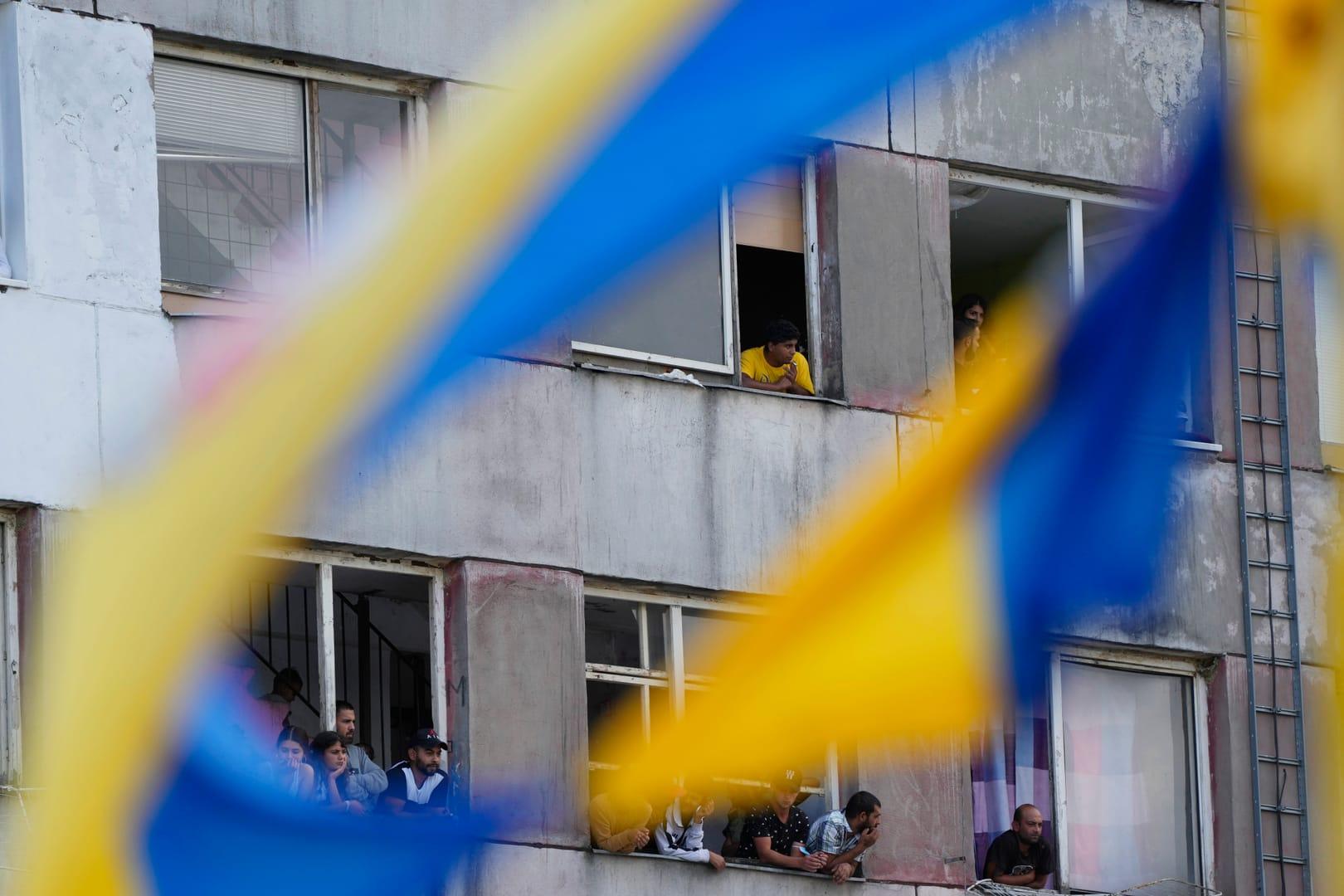KOŠICE, Slovakia — Speaking at the largest Roma ghetto in Europe, Pope Francis said they are not in the margins of the Catholic Church, but at its center, and that they should be at the center of society too, integrated and not hidden from view.
“All too often you have been the object of prejudice and harsh judgements, discriminatory stereotypes, defamatory words and gestures,” Francis said. “As a result, we are all poorer, poorer in humanity. Restoring dignity means passing from prejudice to dialogue, from introspection to integration.”
Often dubbed the pope of the peripheries, Francis has made a point of visiting those who are in the margins of society during his trips outside of Italy and on Tuesday he visited the Luník IX district, a neighborhood built in the 1970s to host some 2,500 people, most of them military and police. Today, twice as many people live here, virtually all of them from the Roma community, commonly known as gypsies. Many two-bedroom apartments are shared by intergenerational families with little to no access to natural light and basic services such as running water, gas and electricity.
Luník IX is only 15-minutes away from the center of Košice, the country’s second largest city, but it seems like an ocean away from the majestic St Elizabeth Cathedral, or the city center’s historic buildings and romantic streets.
Though technically addressing the Roma community, Francis was also talking to the entire country, as the community of some 500,000 Roma living in Slovakia often face discrimination due to the long-rooted stereotypes of them being scam artists, lazy and uneducated.
According to the pontiff, where there is concern for the human person, patience and concrete efforts to foster integration, these efforts will bear fruit, even if not immediately.
“Judgement and prejudice only increase distances,” Francis said. “Hostility and sharp words are not helpful. Marginalizing others accomplishes nothing. Segregating ourselves and other people eventually leads to anger. The path to peaceful coexistence is integration: An organic, gradual and vital process that starts with coming to know one another, then patiently grows, keeping its gaze fixed on the future.”
The future, he said, are the children, because the future belongs to them, and they should be the ones guiding the decisions made by the adult population: “Their great dreams must not collide with barriers that we have erected. Our children want to grow together with others, without encountering obstacles and exclusion. They deserve a well-integrated and free life. They are the ones who should motivate us to make far-sighted decisions based not on hasty consensus, but on concern for our common future.”
This integration is still far down in the future for the Roma in Slovakia: Statistics show that over 90 percent of the adult population living in this district are unemployed, and most of the children don’t go to the one school available to them in the neighborhood.
Francis also thanked the many volunteers who are engaged in the process of integration, because it requires great effort but often encounters misunderstandings and ingratitude, “even within the Church.”
The State, NGOs, and security forces have all abandoned Luník IX, with the Catholic Church, with the help of the Salesian missionaries, being the only institution that has been willing to stay long enough to break the barrier of mistrust that the Roma often have when it comes to outsiders.
The ghetto is plagued by loan sharks, fights between clans, racism, and degrading living conditions in dilapidated buildings that lack heating in a city that easily reaches freezing temperatures all winter.
“Holy Father, we believe that your presence in this place contributes to all of us achieving a greater unity despite the diversity and we walk on the road to a more peaceful coexistence, through mutual esteem, reconciliation and forgiveness,” said Salesian Father Peter Bešenyei, director of the center the order has in the neighborhood.
Francis thanked the priest for their work, and urged them to persevere in the path they’ve undertaken even if it might not “yield immediate results, but is nonetheless prophetic, for it embraces the least of our brothers and sisters.”
“Do not be afraid to go out to encounter the marginalized,” he said. “You will find that you are going out to meet Jesus. He awaits you wherever there is need, not comfort; wherever service rules, not power; wherever incarnation, not self-indulgence, is required. Those are the places where he will be found. I ask all of you to overcome your fears and to leave behind past injuries, confidently, step by step: in honest work, in the dignity born of earning our daily bread, in fostering mutual trust and in praying for one another.”
Slovak Salesian Father Marian Deahos told journalists that he’s uncertain about just how much the Roma will actually embrace the pope’s call for integration but agreed that both they and the rest of the country need to hear it.
“Many in this country have extreme-right views, many are racist, and it’s important that he calls us to be open,” he said minutes before the pope’s arrival.
“They have their images of Mary and Jesus in their homes, but it’s difficult for us to help them understand the importance of the Eucharist,” he acknowledged.











